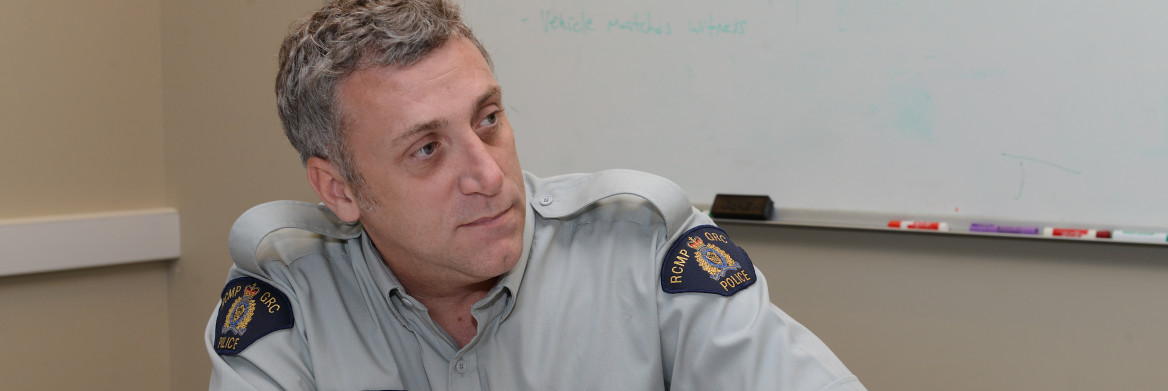Interviewing a suspect used to mean accusing them of a crime in an attempt to get a confession. Since the RCMP adopted the Phased Interview Model for Suspects, that approach is no longer the rule, it's the exception. Sgt. Darren Carr, an interviewing specialist in the RCMP, was instrumental in developing the new model. He spoke with Deidre Seiden about the best techniques and why there was a need for a change.
What's the Phased Interview Approach?
It's a hybrid approach of non-accusatory and accusatory-based interviewing. In North America, we've tended to use the Reid Technique of interrogation, which is very accusatory. The new phased model is influenced by the United Kingdom's PEACE model. Non-accusatory based interviewing is all about getting the person talking, letting them say what they have to say and focusing more on things like provable lies and slowly dismantling the story rather than accusing them.
What's the biggest change?
Previously, we were always taught to shut down the suspect's denial. We don't teach that anymore. We always default back to a non-accusatory based interview. If the person wants to give us what they believe is a reasonable explanation as to why their DNA is on the knife, we'll take that.
And we don't do the subjective assessment of body language or spoken word anymore. Research has proven this simply doesn't work. And that's fundamentally what's been wrong with the Reid approach: it's very much prefaced on this faulty belief that we can subjectively assess the veracity of a statement and we can't.
Another difference is we're not focused on getting a confession, we're focused on gathering information. And that's probably a good way to characterize PEACE versus Reid. We aren't blindly chasing after the confession.
What techniques work in an interview?
In the first stage of an interview, we just want to get the person talking about anything. Then slide into the reason we're in that room. We may objectively know they are lying based on evidence, but we don't care. We're just going to let them talk.
And then the next important stage is what we call the challenge where I'll go in and highlight the inconsistencies but I'm doing it in a non-accusatory way. I let them explain it how they want rather than accusing them and shutting them down.
The other technique that we focus on is what we refer to as the strategic use of evidence. Traditionally, we'd have a piece of evidence, say, your vehicle caught on video, and we'd walk into the interview room and say, "I absolutely know you committed this crime. There's no point in denying it. We have your vehicle on video. Now, why did you do this?
" In the new approach, I'll just say, "Tell me where you were last night.
" And I know that I have this piece of evidence in my back pocket. And if you lie, I know objectively that you're lying. And then at some point in the interview, I will present that evidence to you and say, "Well, can you explain this?
" That's a strategic use of evidence.
Was there a need to change the approach?
Back in 2012, when I was on the interview team in British Columbia, we recognized that we had to change our model.
In the past, there was a belief that you could fit the same approach to any interview, which you can't. Interviewing is a very dynamic thing. Sometimes you have lots of evidence. Sometimes you don't. Sometimes you'll have a person who willingly engages with you. Sometimes the person will say nothing. I think it was naïve of us to think there was a one-size-fits-all sort of approach to interviewing.
A colleague and I spent a month with the London Metropolitan Police Service learning about the PEACE model, and when we returned we started a focus group of subject matter experts from across the country. We came up with the Phased Interview Model, a model that's more adaptive to the demands of the interview as it's unfolding, which the RCMP adopted forcewide.
A good interview should be a slow walk, approached from the perspective of non-accusatory based interviewing, while recognizing that you can go accusatory in certain situations, but there is absolutely no expectation that you must go accusatory.
